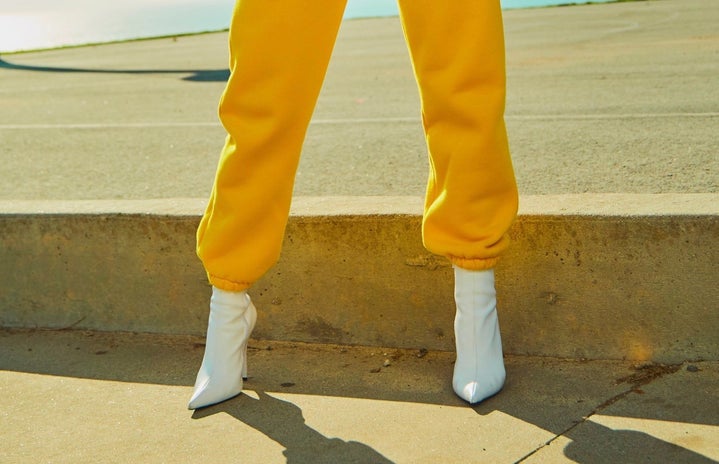It feels like, with every season at Fashion Week, we get a new scandal. This February’s New York season brought with it accusations of blackface imagery at the Fashion Institute of Technology’s Fall/Winter 2020 runway show. Somehow, haute couture is no stranger to this sort of scandal. Think Prada’s blackface store decor in 2019, Dolce & Gabbana’s 2018 “DG Loves China” campaign appropriating Asian culture, Gucci’s blackface turtleneck sweater in 2019, Gucci’s use of straitjackets in their spring/summer 2020 collection and, again, Gucci’s 2019 headscarf that was pulled from Nordstrom shelves over claims that it resembled a Sikh turban.
Though our society is by no means perfect when it comes to cultural appropriation, compared to the fashion industry, it feels like the rest of the world got up to speed on what is and is not acceptable forever ago.
In the weeks following their scandals, there were calls for boycotts of these brands. And yet, Gucci, Prada and Dolce & Gabbana all hosted highly publicized shows at the most recent Milan Fashion Week. Vogue Runway covered, and praised, all three ready-to-wear collections. Any year-old scandals felt swept under the rug; Gucci opened the week, Prada was lauded for its celebration of femininity and Dolce & Gabbana impressed viewers with soft, hand-knitted designs. These brand names are colossal – larger than any scandal that could befall them. Is it actually possible to “cancel” something so iconic?
There’s a reason high fashion feels out of reach – it is. These names are the building blocks of couture itself, cherished to an extent that is out of reach for any commercial brand. The discourse surrounding the designers is occurring among a different audience than the people who are actually buying their products. High fashion happens on a different level than popular culture; anyone can call for a boycott, but it is up to the brand’s customers to actually carry out the protest. Those who can afford luxury goods are a very small population with loyalty to the designer’s name; a few scandals are unlikely to shake that loyalty.
Gucci is perhaps the most widely recognized high fashion label in the world. Though it was founded in 1921, it’s still everywhere today. The interlocking G logo and red-and-green stripe are universally recognizable, and have become status symbols in themselves. Perhaps, as Gucci nears its 100th birthday, it’s time to take a look at what it is that we’re glorifying.
It feels as though we’ve been treating luxury labels like Gucci with the same indifference as we would an older, out-of-touch relative: they’re from another time, another place and we can’t expect them to understand. This is not the approach to take. Gucci, Prada, Dolce & Gabbana and similarly iconic brands have a responsibility to cater to the culture they serve, and their customers have been enabling them to outrun their mistakes. It is by no means easy to bring down a nearly century-old brand; it is, however, doable to ask them to get up to speed.
Imagine if any of these offenses had been committed by a celebrity, rather than a brand. Their career could have ended; at best, their image would have been permanently marred. Why, then, have fashion labels been able to get away with transgressions which, in retrospect, anyone could have seen coming? How is it that something like blackface is so hard to avoid? It is objectively difficult to stop viewing iconic brands as the absolute best of the best. These brands are globally acclaimed for a reason; still, it may be time we added a few more progressive descriptors to their branding.


